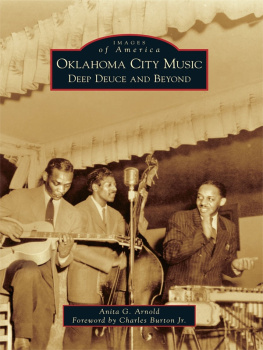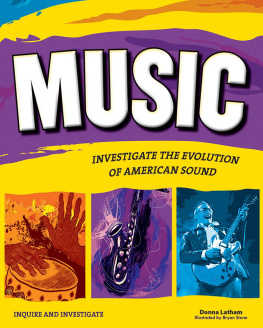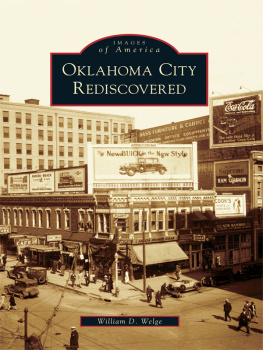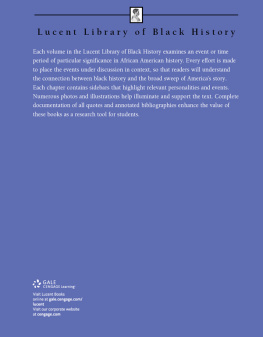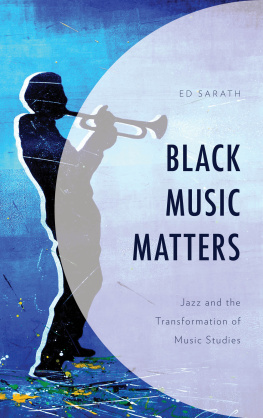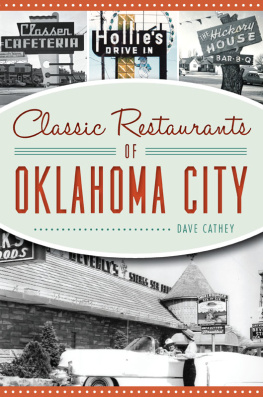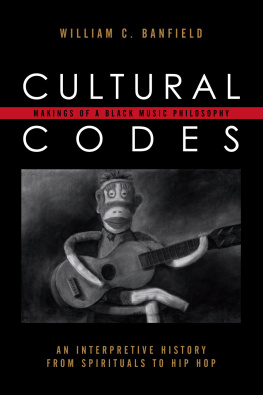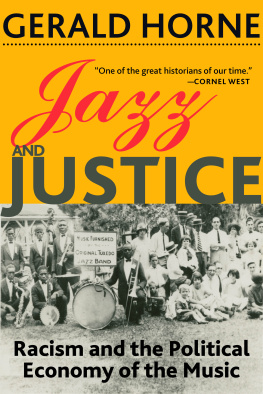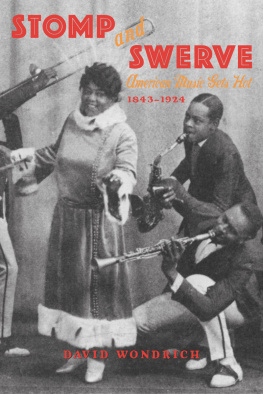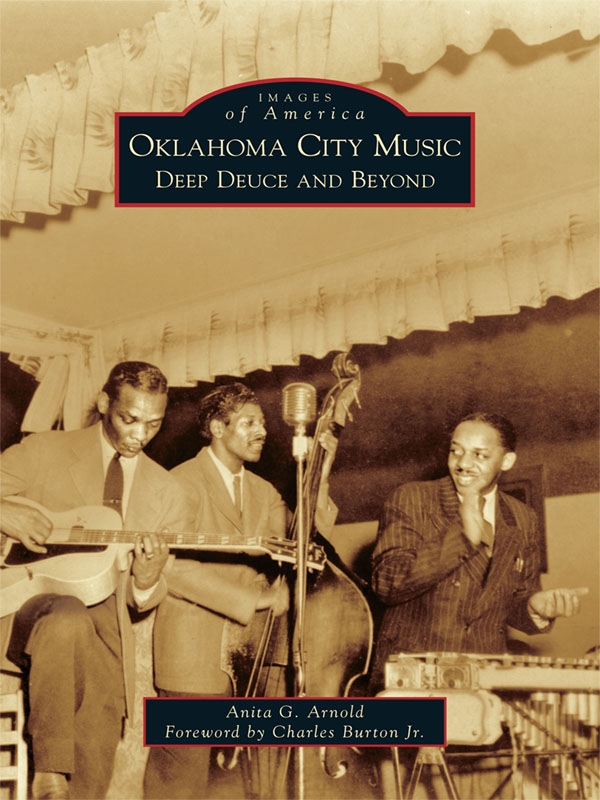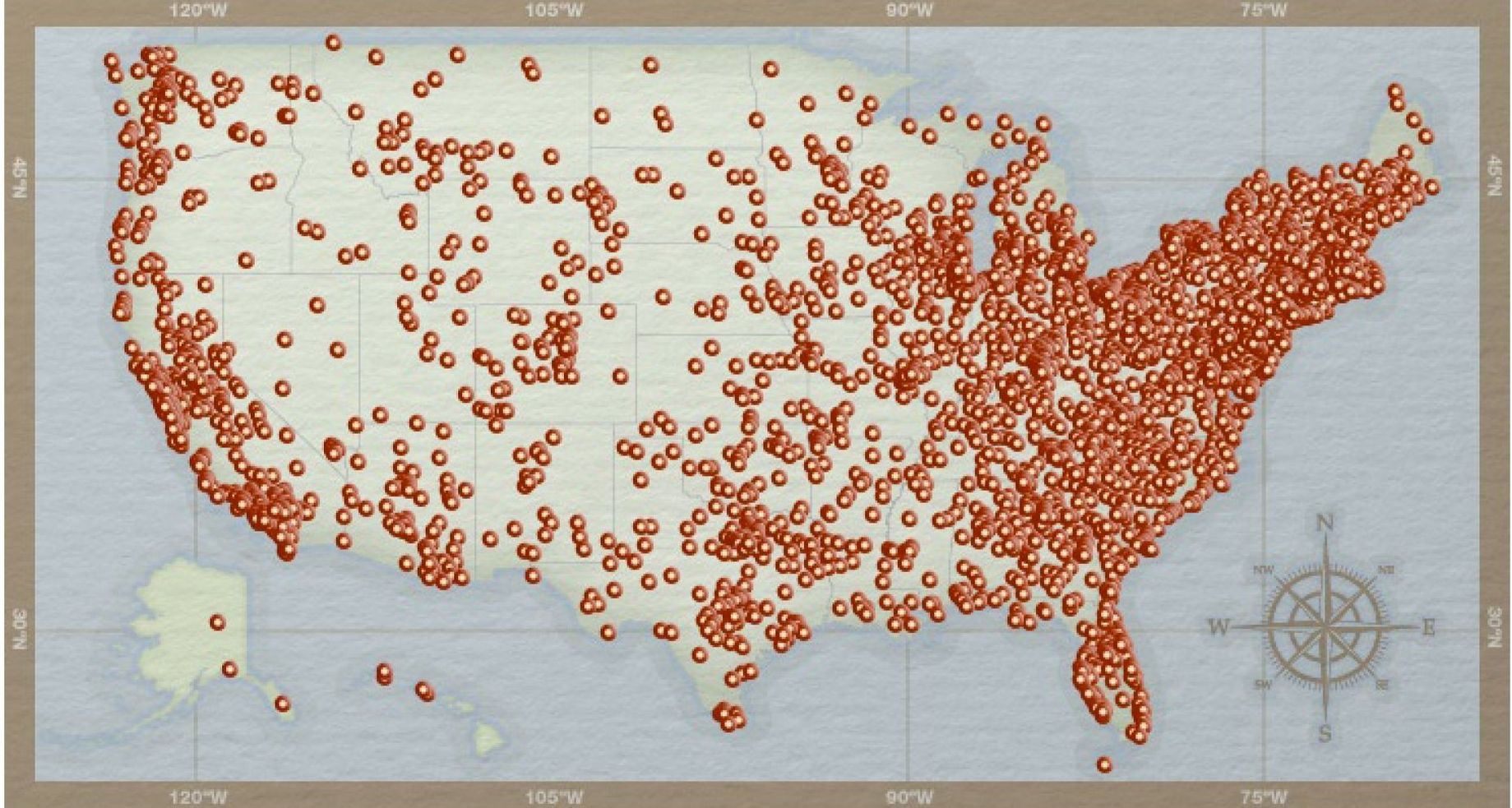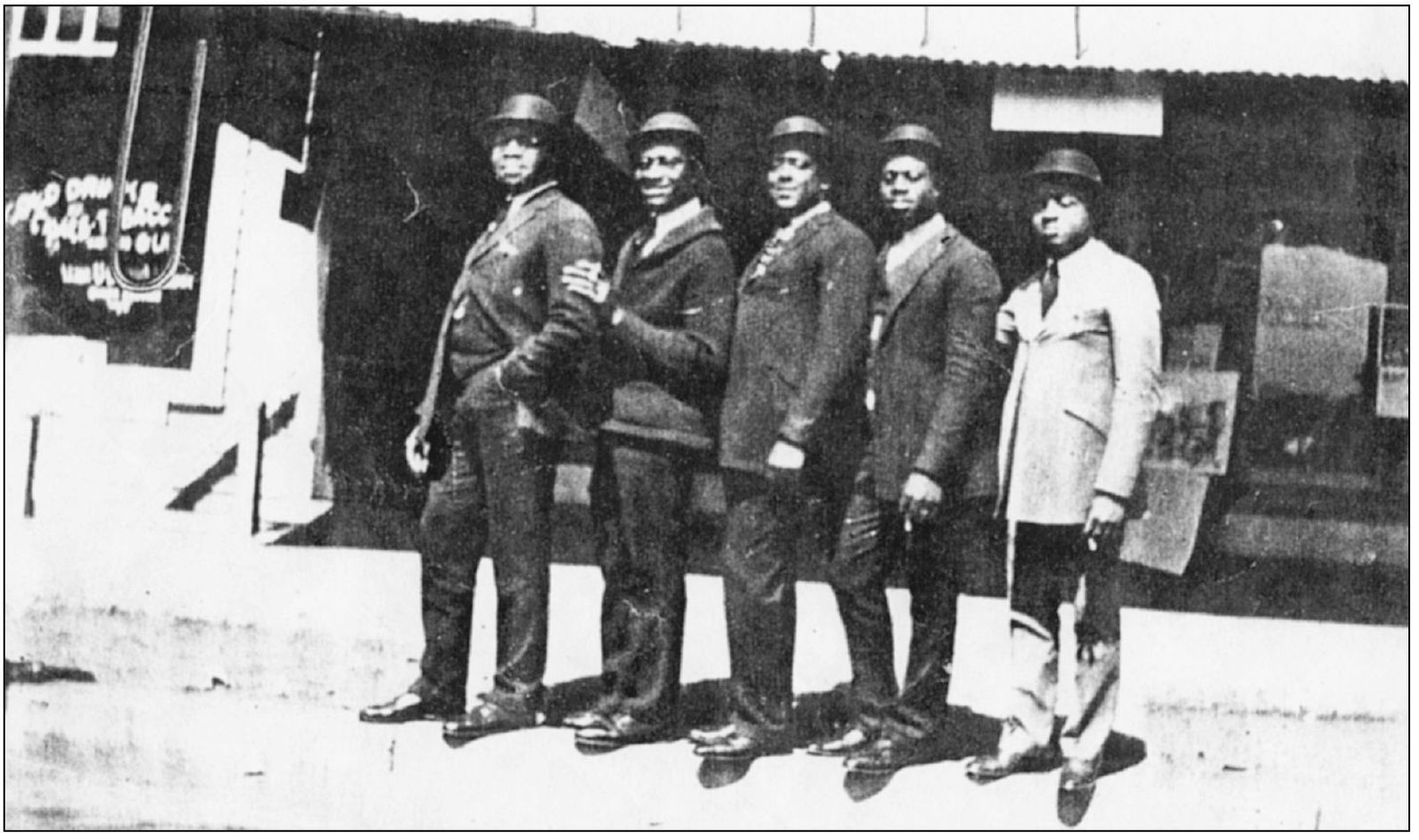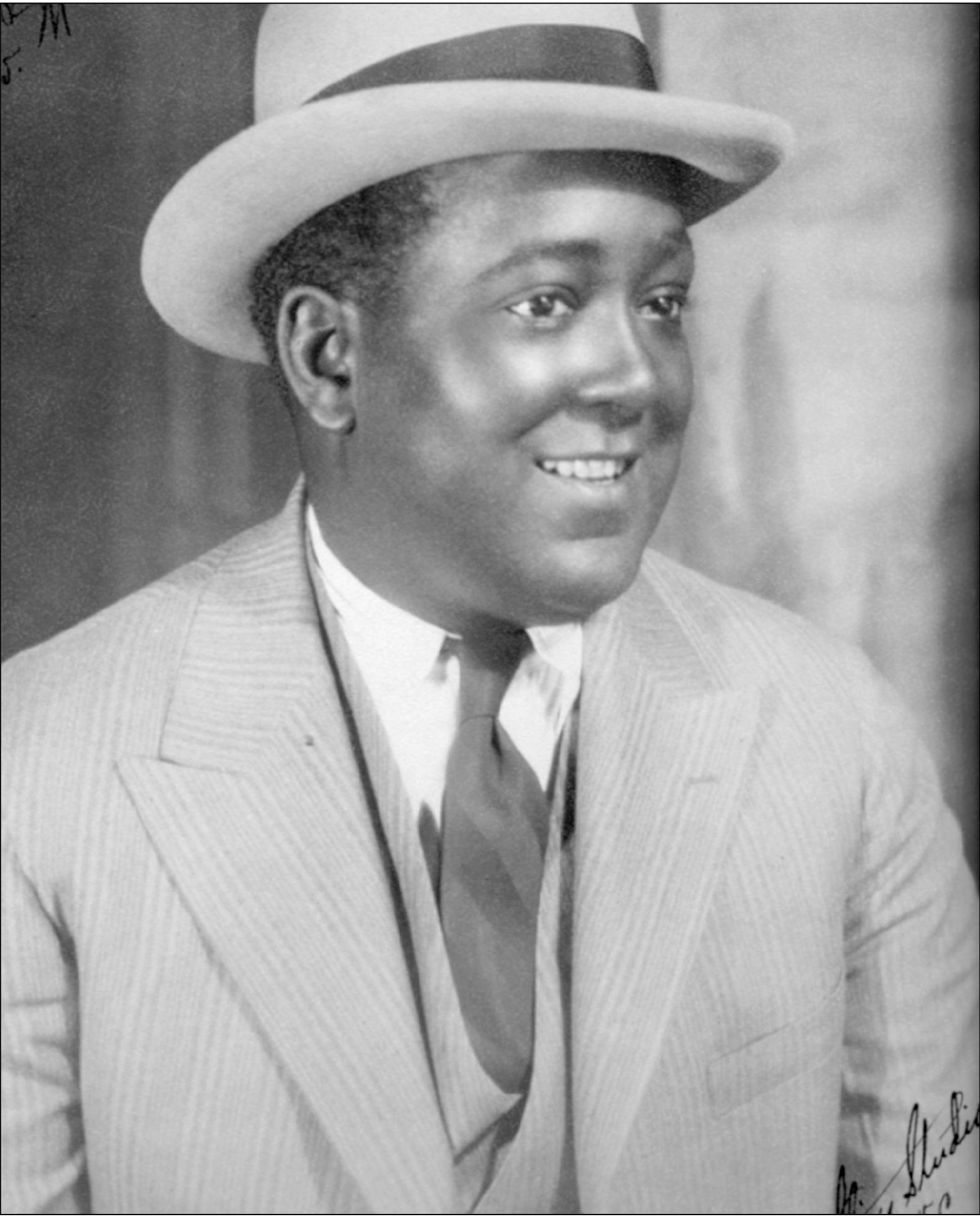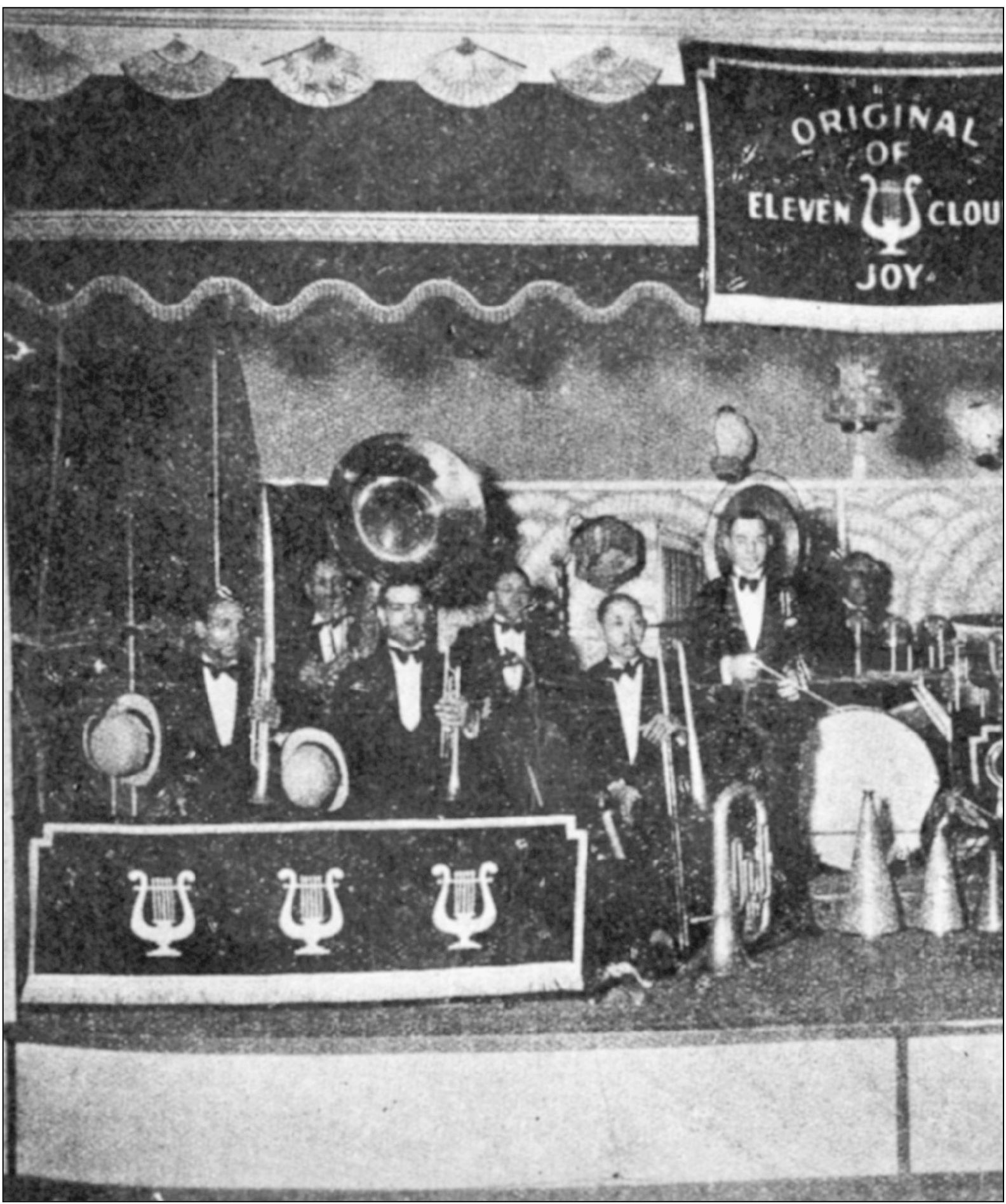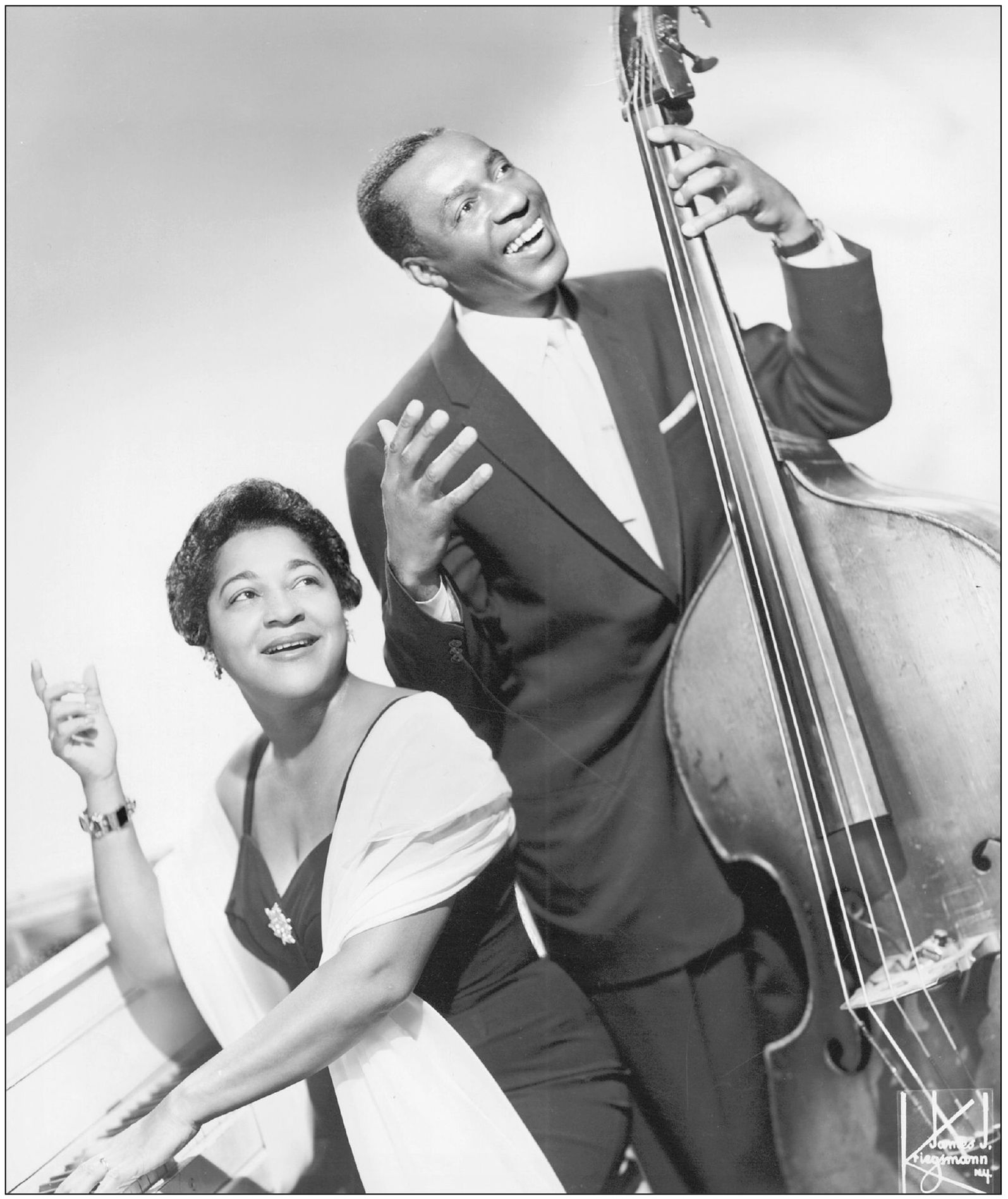ACKNOWLEDGMENTS
My love for music and writing began in the 1950s when I heard the song Ham Bone, Ham Bone and believed I could write music. I wrote one song, Ive Got to Go to School or Ill Be a Big Fat Fool, and worked with my piano teacher, the late Alta Watson at Earlsboro, Oklahomas Douglass Elementary School, to put music to the words. She inspired and encouraged me, and I never lost my passion.
In 1994, while researching and writing my first three cultural history books, I learned about the music history of Oklahoma City. It was exciting! Special thanks to all of the oral historians, including Leroy Parks, who helped lay the foundation for this book. I cannot thank Leo Valdes enough for the help he provided me with his 40-plus years of collecting information and photographs of Charlie Christian.
I am deeply indebted to Sharon Dean and her family, who worked tirelessly with me in getting the mountains of photographs in the right format for publication. Shannon Brown was always there to help whenever I needed her, even into the next day when required; thanks Shannon. Hats off to 88-year-old Raymond Harrison, owner of several night clubs and part owner of KAEZ Radio, and to Lilly Mae Booker, who in spite of turning 100 years old on Friday, November 13, 2009, was gracious and generous in her contributions as a socialite who danced the planks off the floor during the heyday of Deep Deuce. Others who were a great help include George Barnes, Charles Burton, Joyce Dunlap, Kirbie Greene, Marion Harkey, Eugene Jones, Harold Jones, Johan Kimbro, Morris McCraven, Charlie Nicholson, Harold Edwards, the Earl Pittman family, Ellen Sheffield, and Walter Taylor.
I wish to thank my friend William Welge, from the Oklahoma History Center, who was generous with his time and resources in making this book possible. I thank my editors Ted Gerstle and John Pearson at Arcadia Publishing, who were great in encouraging me and were very patient during a personal tragedy that took time away from the project. They were marvelous to work with.
Find more books like this at
www.imagesofamerica.com
Search for your hometown history, your old
stomping grounds, and even your favorite sports team.
One
BLUES SHOUTING AND ALL THAT JAZZ
Pictured here around 1925 are the original Blue Devils. From left to right are Walter Page, Ermal Coleman, Edward McNeil, Lawrence Williams, and William C. Lewis. Upon hearing this group play, Count Basie could not believe the sound he heard, and from that day forward all he ever wanted was to become a Blue Devil. Their motto was All for one and one for all. Pianist Willie Lewis and bassist Walter Page attended college. Ed McNeil was a highly respected drummer who died at age 35. Trombonist Ermal Coleman, the oldest of the Blue Devils, was an army veteran who earned a living as a dance musician. Years later, the Blue Devils were inducted into the Oklahoma Jazz Hall of Fame. (Courtesy of the Earl Pittman family.)
Edward Crack McNeil was a Kansas City musician who also played in Andy Kirks Clouds of Joy. He had a national reputation among drummers as an expert. He married Bernice Burnett, daughter of a local grocer and sister-in-law of Earl Cornelius Pittman. Four years later, after playing at Slaughters Hall, he slumped over unconscious and died later at St. Anthonys Hospital at the age of 35 of acute myocarditis. It was just about the time that swing was about to become popular in the United States. McNeil was a founding member of the Blue Devils. Edward Christian challenged musicians to pay their respects to McNeil by showing up to do whatever was needed for his funeral. Christian described McNeil as one of the best friends musicians had. (Courtesy of the Earl Pittman family.)
Edward McNeil (far right) is shown with the Clouds of Joy, believed to be Andy Kirks Twelve Clouds of Joy. The banner in the photograph indicates 11 band members but an actual count reveals 12 (5 are off camera to the right). The band started as Terry Holders Dark Clouds of Joy, and Andy Kirk was elected the bandleader after Holder left. The Clouds of Joy later featured Mary Williams as pianist and became the second Kansas City band, following Benny Motens Kansas City Orchestra, to achieve national status. Apparently McNeil spent less than a year playing with Andy Kirks Clouds of Joy because he left and returned to Oklahoma City in 1928. It is not clear if music became a part-time endeavor for McNeil. According to Belvy Lewis, a local aficionado of music, the Clouds of Joy played popular music and gospel. (Courtesy of the Earl Pittman family.)
Born in Missouri in 1900, Walter Pages musical background includes religious and neighborhood influences, where neighbors taught him to play bass horn. In school he was a bass drummer. After graduating from Lincoln High School, while at Kansas University, Page (at left) studied sax, violin, piano, voice, composition, and arranging. During World War I, he was a chief musician. After the war, Page played with Bennie Moten before joining the Blue Devils as their leader. Largely responsible for the unique sound of the Blue Devils, which made the group sound like twice their actual number, he moved the band from a combo to a full-fledged swing band. Count Basie came to Oklahoma and recruited Page and Jack Washington, a saxophone player, for his band in 1935. Washington is pictured below with his wife, Maphelle. (Both courtesy of Black Liberated Arts Center, Inc.)
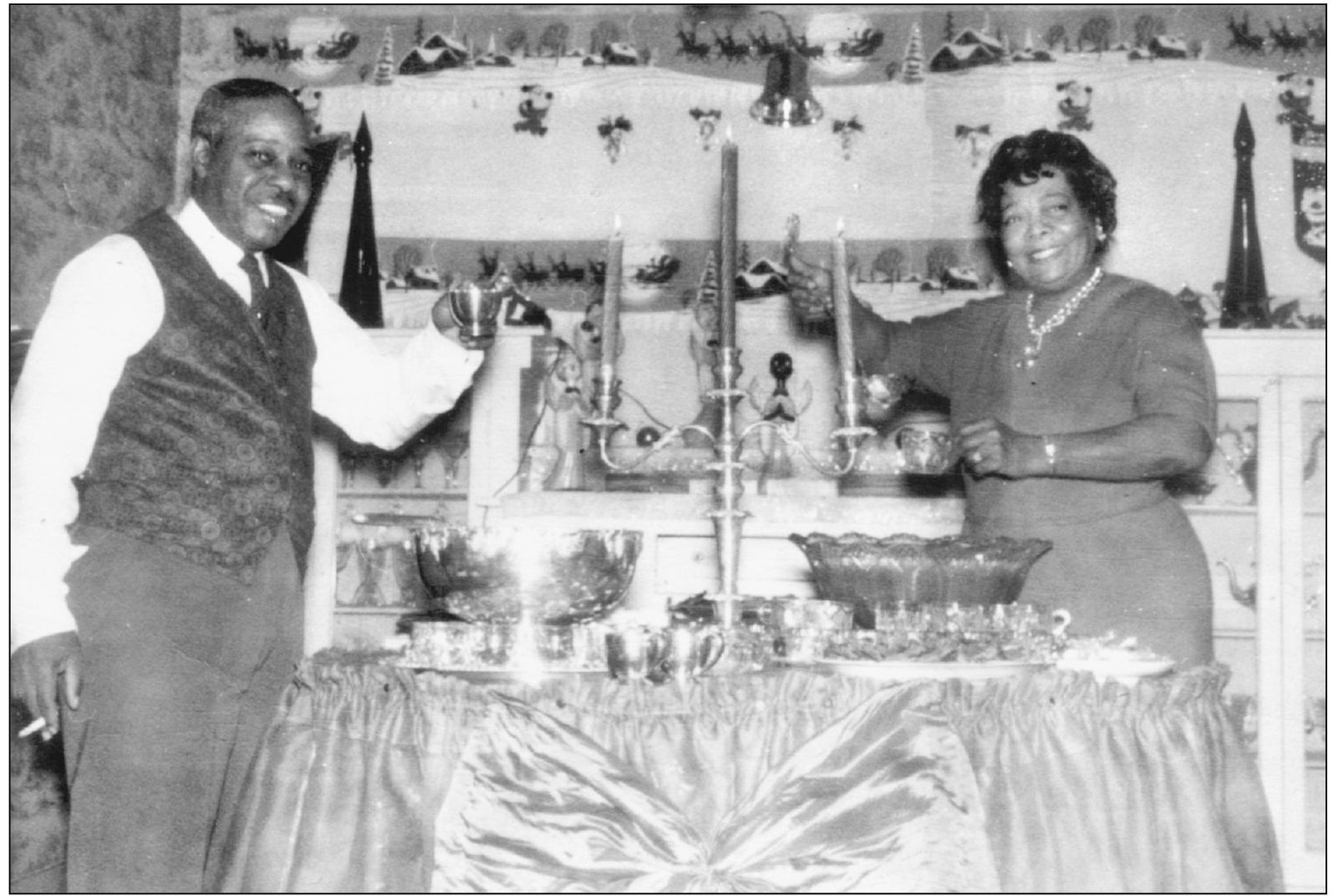
Abe Bolar was born on March 3, 1908, in Oklahoma City and started playing bass at the age of 14 in Guthrie, Oklahoma. A few years later, he became a professional and moved to Oklahoma City to join the Blue Devils. Abe later sat in as a substitute for Walter Page in the Count Basie Band. His wife, Juanita, was a pianist. Although the couple lived in New York City for more than 20 years, they were remembered and cherished by the folks on Deep Deuce. Bolar became well known in New York as a sideman who played with Lucky Millender during the 1940s and was a freelancer at recording sessions. It was his long stint with the combo formed with Benton Heath at the New Gardens Club that accounted for his longevity in the Big Apple. (Courtesy of Gloria D. Hall.)

